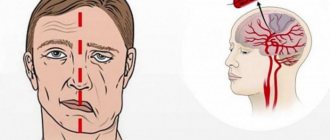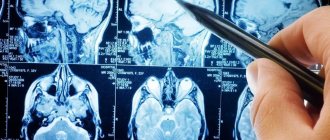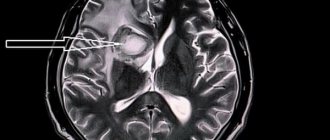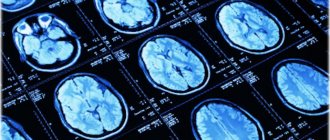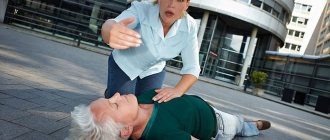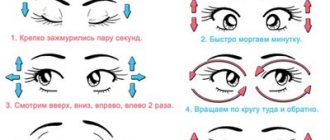The question of whether it is possible to drink alcoholic beverages after a stroke interests many patients. A stroke is an acute disorder of blood circulation in the brain, which is accompanied by pronounced symptoms and causes serious damage to the human brain. The possibility of drinking alcohol during the rehabilitation period can be determined by a neurologist during a consultation. At the Yusupov Hospital you can consult a neurologist and undergo a full examination. Qualified neurologists treat patients, rehabilitation doctors help people restore lost functions after a stroke.
Alcohol as a risk factor for stroke
Any alcohol contains ethanol, which, when released into the blood, changes the functioning of the entire cardiovascular system. With regular consumption of alcohol, the walls of blood vessels become thinner, the composition of the blood changes - the number of red blood cells decreases. The remaining blood cells under the influence of alcohol simply stick together and can, forming blood clots, block the cross-section of the vessel.
Ethanol also disrupts the metabolism of fats in the blood; plaques appear in the vessels, which increase the risk of thrombosis.
Thrombosis
The following changes occur in the cardiovascular system:
- blood vessels dilate;
- blood pressure rises;
- the load on the heart increases;
- pulse quickens.
As ethanol breaks down, the blood vessels narrow, but the pressure remains high. The walls of the brain vessels are under severe stress and may not withstand the pressure. The result is bleeding in the brain. This phenomenon occurs in people who frequently drink alcohol, especially strong drinks.
Alcoholic drinks and the risk of another brain stroke
Alcohol abuse is one of the risk factors for stroke. This is due to the damaging effect of alcoholic beverages on blood vessels. If you regularly drink large amounts of alcohol:
- The concentration of bad cholesterol increases, the concentration of good cholesterol decreases. This creates favorable conditions for the formation of atherosclerotic plaques, the main cause of ischemic stroke.
- Blood pressure rises. Hypertension makes brain vessels fragile, prone to rupture, leads to the formation of aneurysms, promotes the formation of cholesterol deposits, and the development of atrial fibrillation. All of these disorders are the most common causes of brain stroke.
- The liver is damaged. The organ is responsible for removing bad cholesterol and synthesizes proteins necessary for the formation of blood clots. Impaired liver function affects the likelihood of developing hemorrhagic stroke.
- It is more difficult to control your weight. Since most types of strong drinks contain a considerable amount of calories.
It has also been proven that alcohol abuse is associated with the development of diabetes mellitus - two independent risk factors for the development of stroke.
Features of stroke
Stroke is a pathology of cerebral circulation. It occurs as a result of hemorrhage in the brain or blockage of blood vessels. A stroke is dangerous with a high probability of death for the patient. The outcome of the attack depends on the time of first aid.
The following signs allow you to understand that this is a stroke:
- paralysis of one half of the body;
- distorted face, inability to smile;
- speech disorders;
- facial redness, fever;
- noise in the head, pain, dizziness;
- dyspnea;
- darkening of the eyes;
- nausea.
Signs of a stroke can easily be confused with intoxication, so the patient is asked to smile or stick out his tongue - with hemorrhage, the tongue and corners of the mouth will be slanted down to one side. Or they ask you to raise your arms - during an attack it is impossible to raise both arms, one will be weaker than the other. If such symptoms are observed, you should urgently call an ambulance, since the time to save a life is no more than 4 hours.
Symptoms of alcoholic stroke
The first signs are lost against the background of withdrawal or intoxication. This condition is called an erased form of alcoholic stroke. Headache, dizziness and nausea do not cause suspicion during this period. But if you suddenly experience severe weakness, increased pain, or vomiting, you should be wary. The manifestations are identical in women and men, at the same time they are accompanied by the following signs of the clinical picture:
- unilateral numbness of the face and limbs;
- vascular cephalgia not controlled by medication;
- lack of coordination, uncertainty of movements, unsteady gait;
- constant weakness and nausea;
- confusion, incoherent slurred speech;
- autonomic disorders - hot flashes, sweating, dry mouth, tachycardia.
The person does not understand and is unable to explain his condition. Loses contact with reality, ceases to navigate in time, makes incomprehensible movements and actions. Sudden mood swings are possible. Such clinical manifestations cannot be ignored.
The severity of stroke symptoms after heavy drinking and the severity of the pathological condition directly depend on the degree and location of the blood flow disturbance, as well as the area of the brain in which it occurred. If at this moment there is no sober person nearby, and those around you are also drunk and cannot provide primary assistance or call a doctor, severe brain disorders develop. Late treatment reduces the positive prognosis and the likelihood of recovery with minimal consequences.
Types of strokes from alcohol
Alcohol abuse provokes the development of 2 types of stroke:
- Ischemic. Occurs due to vascular spasm due to blockage by a blood clot. Blood stops circulating to the brain, tissues begin to lack oxygen and gradually die.
- Hemorrhagic. It causes rupture of the vascular wall in the brain, which also causes oxygen starvation of the damaged area of the brain. Neurons gradually stop functioning and die.
Stroke
The effect of alcohol on a person after a stroke
The consequences of a stroke can last a person's entire life. Drinking alcohol after a stroke can increase negative symptoms:
- dehydration of the body;
- insomnia;
- speech disorder;
- decreased motor activity of the limbs;
- depression, anxiety-phobic disorders;
- metabolic disorders, especially lipid metabolism;
- deficiency of B vitamins;
- failure of the liver and kidneys.
Therefore, when asked by a patient: is it possible to drink alcohol after a stroke, doctors answer unequivocally: no, under no circumstances.
Attention! Even minimal doses are strictly prohibited.
When is drinking alcohol strictly prohibited?
You should definitely stop drinking alcohol if the patient has suffered a serious stroke. Any dose of alcohol can provoke a relapse and death. If a person has suffered a stroke without serious consequences, he feels well - perhaps the doctor will allow him to drink a little afterwards, but this is unlikely. Drinkers cannot control themselves, so it is better not to take risks.
It is strictly forbidden to drink in the following cases:
- therapy - taking medications implies a complete abstinence from alcohol, since alcohol and medications are incompatible;
- hypertension - ethanol can cause rupture of a cerebral aneurysm;
- rehabilitation period after an attack - during this time the likelihood of a second attack or micro-stroke is high;
- severe complications - destructive changes in joints, impaired vision, speech;
- chronic alcoholism - when a stroke was caused by the abuse of alcoholic beverages.
However, some experts argue that you can drink alcohol in small doses after a stroke.
Why are alcohol lovers less likely to receive timely medical care?
The first symptoms of a stroke are in many ways similar to alcohol intoxication. The gait is unsteady, speech is slurred, movements are chaotic. It is very easy to mistake such a person for a drunk. It is especially difficult to distinguish between these two conditions if the patient is a drinker. Everyone gets so used to seeing him in this state that they don’t pay attention. Usually, relatives, acquaintances, and colleagues begin to feel something is wrong much later, when the optimal time for providing medical care has been missed.
The similarity between “stroke and alcohol” is important to remember; if you meet a drunk person, ask him to raise both hands and smile. If he can only raise one hand, and the smile turns out to be skewed: one corner of his mouth is raised, the other is lowered - this is a stroke, even if the person smells of alcohol.
When and how much can you drink?
At the end of the rehabilitation period after a stroke, drinking alcohol is extremely undesirable, but if you don’t care about your life, then you can do so in strictly limited quantities. Doctors recommend drinking separate alcoholic beverages, but this can be done no more than 1-2 times a month.
Alcohol consumption
What can you drink from alcohol after a stroke:
- beer - no more than 250 ml;
- wine - no more than 200 ml;
- cognac - 30-50 ml;
- vodka - 30-50 ml.
Experts recommend choosing dry red wine , to which no additional ethyl alcohol is added. This wine is produced by fermenting grapes, so it is beneficial for healthy people and not so critical for a stroke survivor. But its dosage should be strictly limited.
It is better to abstain from drinking other alcoholic beverages after a stroke, especially strong ones.
To quell your desire to drink more, you need to follow some rules:
- drink in small sips;
- After each sip, place the glass on the table;
- try to “skip” toast or alternate alcohol and another drink - juice, for example;
- do not snack on salty and fatty foods;
- don't drink alone;
- drink on a full stomach;
- choose small volumes of bottles of alcohol.
Also, many experts advise keeping a diary, which will describe when and how much you drank.
How can you reduce your alcohol consumption?
To reduce your alcohol consumption, use these tricks:
- drink alcoholic drinks in small sips;
- After each sip, lower your glass to the table;
- At parties and corporate events, alternate servings of alcohol with non-alcoholic drinks. Try to give preference to sparkling mineral water rather than sweet lemonade;
- If you have to raise toasts with everyone, keep non-alcoholic drinks nearby;
- any salty snacks (chips, nuts, salted fish) are your enemies. They increase thirst, make you drink more;
- do not drink alone;
- Every week, go without alcohol for at least 2 days;
- give preference to bottles and reduced-volume portions;
- Never drink on an empty stomach, alcohol will be absorbed especially quickly.
Possible consequences of drinking alcohol
When drinking alcohol after a stroke, the patient may experience the following adverse effects:
- pressure changes;
- headache;
- increased blood clotting;
- increased levels of bad cholesterol;
- obesity;
- destruction of liver cells;
- development of heart diseases: cardiopathy, arrhythmia, tachycardia;
- decreased elasticity and tone of vascular walls;
- lack of vitamin B;
- decreased sensitivity and reaction speed;
- disruption of the central nervous system, mental disorders;
Similar phenomena are the consequences of drinking strong drinks, vodka for example. It contains pure ethanol, which has a detrimental effect on the blood vessels of the brain.
Important! But the most important and unpleasant consequence of drinking alcohol is death.
Can drinking alcohol cause another stroke?
There is a relationship between alcohol and stroke. Alcohol can cause a primary stroke, and after a stroke it can provoke a second attack.
May trigger a relapse
This happens for the following reasons:
- Alcohol and its breakdown products poison the body, which negatively affects a person who has already suffered one stroke.
- Ethanol consumption causes insomnia, which provokes disruptions in the functioning of the central nervous system.
- Alcohol-containing drinks thicken the blood, which interferes with its normal circulation.
- Alcohol slows down the functioning of the nerve centers responsible for blood supply.
When drinking alcohol, the blood flow becomes unstable, so oxygen does not reach the capillaries. This poses a danger to the blood vessels of the brain.
Important! If a person does not want to give up alcohol and other bad habits, the doctors’ conclusion is disappointing - the patient’s life expectancy after a stroke will be about 2 years. This same period may be the period until the next attack, which will be the last.
Which alcohol is safer after a stroke?
There is a widespread belief that some alcoholic drinks (dry red wine, cognac) are safer and healthier than others. In fact, this is nothing more than a myth. Any alcohol can be conditionally safe if you follow the daily, one-time limit. In this amount, ethyl alcohol will benefit the body. Taking moderate doses of alcohol increases the content of good cholesterol, which prevents the formation of cholesterol plaques.
However, this fact is confirmed only for healthy people. Therefore, doctors do not recommend that patients after a stroke regularly drink strong drinks, under the guise of health benefits.
